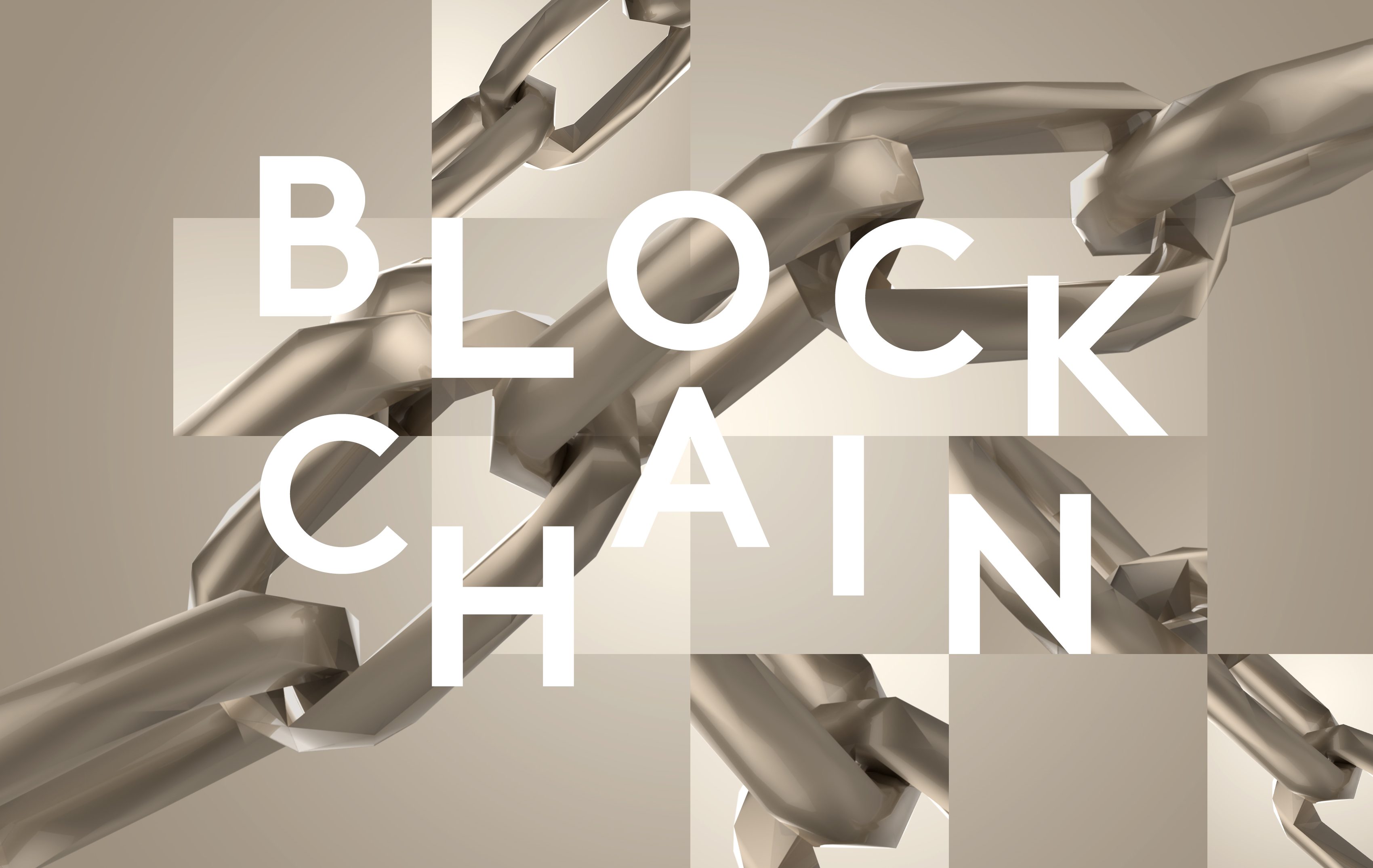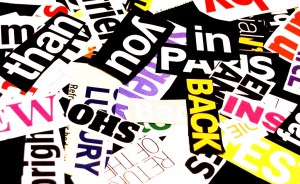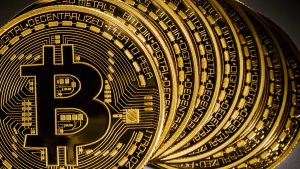
A more ethical approach to consumerism?
by Robbie Fraser | February 26, 2019
Blockchain technology could have a ground-breaking influence on consumerism, but what is it, why is it useful and are there reasons to be sceptical of its impact?
In April of 2013 a building collapsed in Bangladesh. Over 1,100 people died. The managers of the garment factories on six of its eight floors all instructed their employees to come into work despite the appearance of substantial cracks in the walls the day before. The Rana Plaza collapse shook the manufacturing industry and was a tragic demonstration of what can occur as a result of poor working conditions and irresponsible management. Less publicised was the confusion clothing companies like Benetton had in even identifying whether the factories in the building were part of their supply chain. They didn’t just miss the inadequate standards, they didn’t even know where their clothes were being made. The complexity of supply systems can act as a veil for malpractice and is a real issue – especially for multinational corporations like Apple with over 200 suppliers around the world. From conflict minerals in our phones to carcinogenic ingredients in our pharmaceuticals, the supply chains of major industries have been rocked by controversies in recent years. How can we make these globalised supply chains more transparent, and ensure as consumers that the goods we buy, from source to final product, are manufactured responsibly and sustainably?
A new approach is emerging from an unexpected direction: blockchain technology. Compared to using external organisations such as Fairtrade, Blockchain has the potential to be a more efficient and reliable mechanism for auditing supply systems. It could make knowing exactly where and how our products get made infinitely simpler.
Blockchain was originally invented in 2008 as a means of underwriting online currencies like Bitcoin. Paying for things online is actually a step into the unknown. There’s uncertainty around who someone is, whether they have enough money to pay you and whether the money will even reach you when they send it. Our trust in banks to act as an intermediary and securely handle transactions means we barely even think about these issues. The idea behind Bitcoin was to create an international online currency without the regulation of any central authorities; bypassing banks though meant the insecurities around exchanging money online resurfaced.
Using blockchain online currencies could replace the security offered by a trustworthy intermediary with safety in numbers. Rather than a bank overseeing every transaction, all transactions get sent to every user on the blockchain network for authentication, and only once this has happened is a transaction accepted and the blockchain updated. A blockchain is essentially a digital ledger that anyone can join and everyone gets to audit. It records every transaction, detailing who sends what to whom and when. It then encodes and sends that information, via a process of data ‘mining’, to everyone with a computer trading in Bitcoin. It’s this decentralisation which creates security, since it’s much harder to hack everybody’s computer at the same time to change the record on the ledger than it is to hack one entity like Paypal who has access to all the transactions. Blockchain creates an indelible, accurate and transparent record of every transaction, enabling users on the Bitcoin network to trade money securely.
Without blockchain, Bitcoin would never have become a reality. But blockchain is a distinct type of technology in itself; it’s a general authentication process which establishes trust in information without the need for intermediaries. In fields as far removed as ownership rights, medical records and governance, there’s growing interest in blockchain’s potential outside of online currencies.
The United Nations World Food Program recently used blockchain to securely provide 100,000 refugees in Jordan with cash vouchers and the UN now has a whole agency working exclusively on blockchain applications. The Estonian government underwrites 99% of their online public services with blockchain and in the US, Montana recently trialled a blockchain system to enable online voting. Organisations are turning to blockchain as the next solution to their problems and the technology is attracting attention and investment from prominent players in almost every industry. There has been a surge in the last five years in the number of blockchain based startups, in both for-profit and not-for-profit spaces. It seems any sector which depends on recording and sharing data in a transparent, accurate and secure way might be able to benefit from blockchain. There is a growing belief that blockchain, not artificial intelligence or machine learning, will be the technology that has the greatest impact in the coming decades.
Back to supply chains. Materials pass through countless hands as they are assembled into a single product and using a blockchain could help disentangle this convoluted process. Each exchange between suppliers can be viewed as a transaction and a digital ledger could record who gave what to whom and when, with each interaction signed off by every member of the supply chain. In principle, you could easily track and trace your iPhone, say, right back to its source. You could follow every step it took along the way from being mined as raw materials to when you bought it off a shelf. Blockchain could open up the enigma of the supply chain with an unprecedented and accessible level of detail.
The driving demand for this detail is coming from both the top down and the bottom up. It’s invaluable for companies who want to meet regulation standards with greater certainty and avoid getting caught out by production scandals. It also helps companies respond to consumer pressure around ethical and sustainable business practice. Next time you buy a tuna sandwich you could scan a QR code and know where and when that specific fish was caught, whether it was with a line, in a net or on a fish farm and who processed it and how afterwards. This isn’t the stuff of a distant future, it’s happening now. Provenance, a UK based startup, recently used blockchain to successfully track tuna end-to-end from when it was caught in Indonesia to when it was sold in the US. They could then present information about the journey it took using a tag on the packaging so consumers could check for themselves. Perhaps more likely, secondary actors, such as journalists and think tanks, will make use of this blockchain information to more authoritatively assess the social and environmental impact of products. Either way it would be empowering for consumers and allow us to much more reliably buy goods which align with our values. As ethical consumerism gains increasing momentum, reshaping our decisions to have a more sustainable bent, the information blockchain makes accessible could be key to guiding these decisions.
Could consumerism change for the better if we really understand its consequences? In truth, these applications of blockchain create just as many questions as answers. While blockchain could provide a much greater level of knowledge around the consequences of buying one product over another, knowledge alone isn’t the sole factor frustrating the progression of ethical consumerism. The bottom line holds strong: unless ethical products can compete financially and are easy to buy then it’s difficult to see how they’ll get everyone, as opposed to those with the privilege of more time and money, to prioritise sustainability and buy in. Public policies which mitigate these costs and promote ethical business practice may be crucial in facilitating that kind of shift in priorities. As a consequence, blockchain’s effects are ultimately constrained by the same complex set of parameters which already hold back ethical consumerism.
There’s also a conversation to be had regarding what exactly the most ethical and sustainable approaches are in business. Inconsistencies can crop up, such as the fact that eating tofu grown on deforested land could have twice the carbon footprint of eating chicken despite its fashionably sustainable appearance. There is often a clear solution, with what is ethical, sustainable and reasonably priced all being aligned, but sometimes inherent trade offs might be involved. Blockchain can help in this conversation, but it doesn’t let us bypass it.
Supporters of blockchain focus on the virtues of its decentralised nature. They herald it as a libertarian instrument almost utopian in its impact: it could be used to redefine or even bypass entirely the role of governments and financial institutions in society. Santiago Siri of Democracy Earth, a platform which uses blockchain as a means of voting peer-to-peer on any issue, believes blockchain could help make “transnational, borderless, permissionless networks the default setting of our political and financial configuration.” Andy Ann, CEO of a decentralised advertising network using blockchain, echoes this optimism: “If the government and public sectors could only understand how to use this technology, they can change the world. The power to make the world better is in their decentralized hands.”
There’s something odd though about the “decentralized hands” at work in realising blockchain’s potential coming from centralised bodies like governments. It points to a tension which entangles blockchain’s future. Many of the blockchains being used by organisations like the UN, or proposed by startups, are private blockchains. Public blockchains, like Bitcoin, are open to anyone and run by everyone, private blockchains on the other hand are run by a single entity and access is limited. A company like Apple, for example, might run a private blockchain to oversee its supply chain, only allowing certain employees access. Although it is still a peer to peer network, members need permission to join, complete and audit transactions; as a result the notion of authentication by consensus which lay at the heart of blockchain’s decentralising promise seems to fall away. As Nouriel Roubini, an economist for the Guardian, comments, these private blockchains are “‘blockchains’ in name only … all ‘decentralised’ blockchains end up being centralised, permissioned databases when they are actually put into use.” Implementations of blockchain will most likely end up relying on ‘old ways’ of establishing trust through reputable intermediaries. This highlights a serious dissonance between how blockchain is seen in principle and how it works in practice which qualifies claims about its future impact. It’s questionable whether blockchain’s promise of fully decentralised networks, where everyone can trust each other even without knowing each other, could even be realised.
From how we transfer disaster relief money to storing medical health records, it’s clear that blockchain has advantages which many sectors could benefit from. Disentangling hype from reality is always tricky though and as exciting as these potential uses are, they are also likely to go undetected. Rather than ushering in a radical new political or economic order, blockchain may simply become a hallmark of how organisations in society innovate and do things better. That being said, in certain cases, including ethical consumerism, blockchain could prove to be more disruptive. Opening up information about supply chains and business practice could make corporations more directly accountable to consumers, forcing them to reconsider how they get things done. Maybe it could also help bridge the chasm which has developed between products and production, revitalising our appreciation for the real social and environmental costs which underlie how things are made. We can more precisely see the connection, however distant, between decisions we make on a micro scale – like what brand of milk we buy – and the effects they have on a macro scale – like climate change and labour exploitation. This might not be the missing piece, but blockchain could certainly help consumerism take a turn from being less naive to more responsible. ∎
Words by Robbie Fraser. Graphic by David Stankiewicz.




